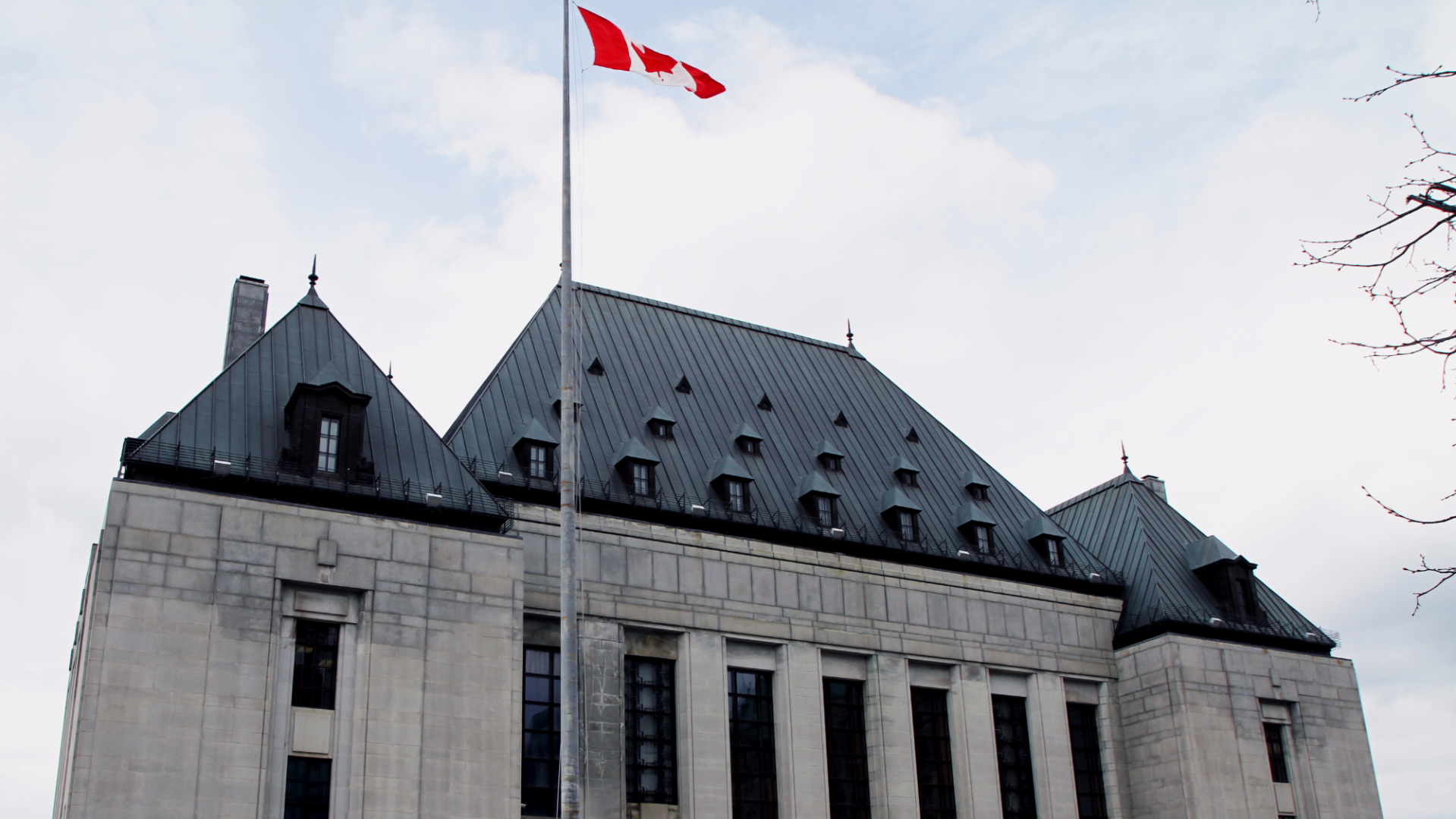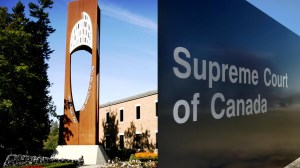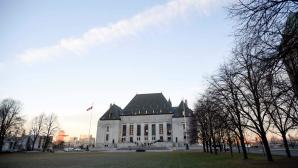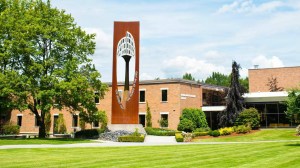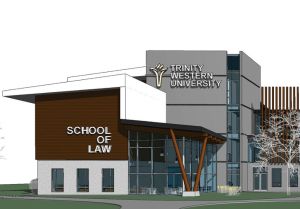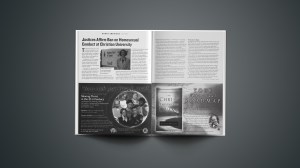In this series
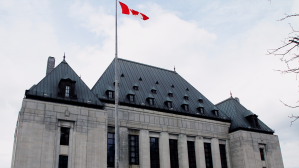
Today the Canadian Supreme Court began hearing a high-profile religious freedom case that will determine the fate of an evangelical law school in suburban Vancouver.
Trinity Western University’s plans to launch a law program—a first for a Christian institution in Canada—were stalled for four years, as the school faced legal challenges over its campus covenant, which bars sexual activity outside of traditional marriage.
Law societies in three Canadian provinces argued that the school policy discriminated against LGBT students, and refused to accredit future Trinity Western graduates as a result.
Canadian law schools must have provincial law society approval (in addition to sanctions from the government’s advanced education ministry and the Federation of Law Societies of Canada) in order to operate.
In three provinces—British Columbia, Nova Scotia, and Ontario—the university defended its position in court, saying the covenant is a reflection of the school’s Christian values and applies broadly to students of all faiths and sexual orientations. It won its case in two of the three, and has appealed up to the Supreme Court in hopes of finally securing approval to operate.
“We are a private institution and we operate in a way that is consistent with our Christian faith,” Earl Phillips, the law school’s executive director, told CBC News. “This is not just a restriction on Trinity Western University, this is not just on evangelical Christians—it’s on the entire Christian church. It’s on all faiths.”
In the joint cases of Trinity Western University v. Law Society of Upper Canada and Trinity Western University v. The Law Society of British Columbia Society, Canada’s highest court will determine whether the law societies’ refusal to accredit Trinity Western’s planned law school violates the university’s religious freedom.
The nine-justice court will hear arguments in the case Thursday and Friday. Trinity Western students traveled to Ottawa to distribute hot chocolate to the crowds gathered at the Supreme Court to hear the case, which was also live-streamed.
This is a big deal for evangelicals in Canada, who see the outcome of the case impacting their own institutions and the future of religion in public life. The Evangelical Fellowship of Canada (EFC) and the Canadian Council of Christian Charities (CCCC) held a day of prayer last Sunday to plead for religious freedom in their country.
“A decision against [Trinity Western] could mean that a religious institution can no longer maintain community expectations, and thereby erode their religious distinctiveness,” the organizations stated. “A negative decision may not only potentially trigger a tightening of restrictions on other Canadian Christian institutions of higher learning, but also restrict other religious organizations that ask its members to live counter-culturally.”
EFC affiliates are among a record-setting number of intervenors expected to appear before the court to weigh in on the case.
Trinity Western, a private liberal arts institution, currently operates six professional schools and is one of 11 universities belonging to the Christian Higher Education Canada (CHEC). In 2000, it had to go before the Supreme Court to defend its teaching college against similar concerns from accreditors.
“Accreditation should not be withheld because some members of a law society do not like [Trinity Western’s] covenant or their religious beliefs,” stated EFC president Bruce Clemenger. “Government agencies are to neither favor nor hinder religious beliefs.”
Counsel for the Law Society of Upper Canada defended its discretion to not admit those whose beliefs are discriminatory, stating, “When public freedoms collide in the public square, there is an inherent limit.”
Ray Pennings, head of the Christian think tank Cardus, has argued that religious freedom protections for groups like Trinity Western actually benefit Canada’s diversity.
“Institutions ought to have the right to define aspirations that come out of deeply held values and to live them consistently in community,” he told media on Thursday. “That’s what a pluralist society looks like.”
Lower courts have issued mixed rulings on Trinity Western, siding with the school’s religious freedom rights in British Columbia and Nova Scotia and decrying its covenant as “deeply discriminatory” in Ontario.
One judgment in the university’s favor stated, “This case demonstrates that a well-intentioned majority acting in the name of tolerance and liberalism, can, if unchecked, impose its views on the minority in a manner that is in itself intolerant and illiberal.”
As Mathew Block wrote for First Things after a lower court ruling on the law school in 2015, “As Canadian society moves in an increasingly secular direction, these sorts of challenges against religious institutions are to be expected. But they are nevertheless actions that religious people can and should fight. We have a place in the public square. And we should not cede it willingly.”
Pennings preemptively spoke out against the implication that religious groups are unwelcome in Canada, citing polling conducted in partnership with the Angus Reid Institute (ARI).
“The push for secular supremacy—often done in the name of inclusion or neutrality—doesn’t mesh well with Canadian society,” he said in a recent National Post op-ed.
“Almost half of Canadians (48%) tell ARI the overall contribution of religion and faith communities to Canada is a mix of good and bad. Another 38 percent say their contribution is either very good or more good than bad. Only 14 percent take a negative view overall. And the same poll suggests almost half of Canadians are open to religious communities having influence on Canadian public life.”
The Vancouver Sun reported that a victory for Trinity Western could mean its law school would open as early as September 2019.
Earlier this year, CT reported on Vancouver evangelicals’ concerns over a Franklin Graham crusade, including their opposition to his remarks on LGBT people. Researchers recently found that though Canada remains more secular than the neighboring US, its evangelical churches—younger and more diverse than mainline ones—are growing.

